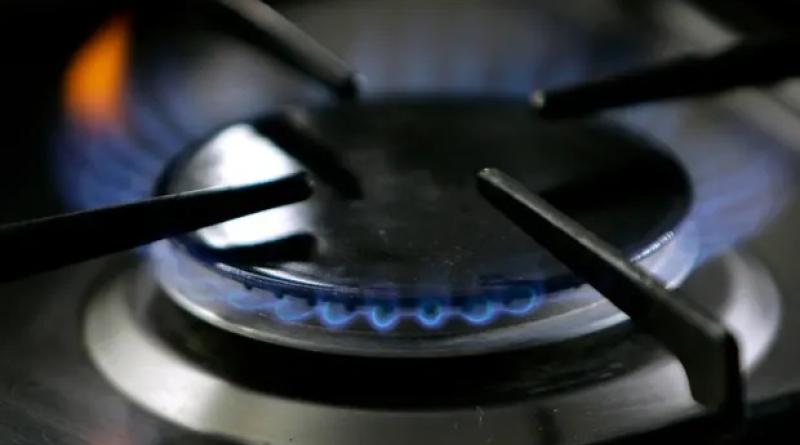Gas stoves emit benzene levels above secondhand smoke, US study finds

Using a gas stove can raise indoor concentrations of benzene, a cancer-linked chemical, to above what is found in secondhand smoking or even beyond levels found next to oil and gas facilities, a new study has found.
The research, which measured benzene levels in 87 homes in California and Colorado, found that gas and propane stoves frequently emitted benzene at rates well above healthy benchmarks set by the World Health Organization and the US Environmental Protection Agency (EPA).
Leaving a single gas hob on for 45 minutes raised benzene levels to above that found in secondhand tobacco smoking, or at the boundary of oil and gas plants, with emissions 10 to 25 times higher than that from electric coil stoves. Even low-burning hobs, or gas oven use, emit significant levels of benzene. Induction stoves emit no benzene at all, the researchers found.
The peer-reviewed study, led by scientists at Stanford University, is the first to use new monitors to effectively measure benzene indoors. Even low doses of airborne benzene raise the risk of a variety of cancers, including lymphomas and leukemia, by damaging people’s bone marrow. Elevated levels of benzene can linger for six hours throughout a house or apartment after a gas stove is turned off.
“I’m hard-pressed to think of a more powerful chemical cause of leukemia than benzene,” said Jan Kirsch, a California-based oncologist who said that people had in their homes a “very potent” cause of blood cell cancers.
“People have died, undoubtably, from exposure to benzene in their homes and unless this problem is ameliorated people will continue to do so,” Kirsch said. “The idea is not to cause panic, but there are risks and we want to reduce them. It’s important this message is carried to the public, so we can understand and act on it.”
More than a third of households in the US use gas stoves, although many lack adequate ventilation to help reduce dangerous levels of benzene, the researchers said. Range hoods, even when they are used, often just circulate air around a dwelling rather than expel the harmful chemicals.
The result is indoor air hazards that often rival, or even exceed, the sort of outdoor air pollution that has been reduced through clean air regulations over the past 50 years.
Gas stoves “are the only common fossil fuel appliance to vent pollution indoors”, said Rob Jackson, a scientist at Stanford who helped lead the new research. “We would never willingly stand over the tailpipe of a car, breathing in its pollution, but we do willingly stand over our stoves, breathing in the pollution they emit,” he added.
Decades of previous research has highlighted the dangers posed by a stew of different emissions, including carbon monoxide and formaldehyde, that come from the burning of gas indoors. A study from earlier this year found that gas stoves are responsible for more than 12% of all childhood asthma cases in the US, with separate research discovering that a series of different pollutants are expelled from gas stoves, even after they are turned off.
Joe Biden’s administration has attempted to formulate efficiency standards for new stoves to lower such pollution, with around half of all stoves currently sold likely to fail the proposed safeguards. Several states, such as New York, have moved to phase out gas appliances in new buildings, too.
This has provoked a furious political backlash, however, with Ron DeSantis, the Republican presidential hopeful, seeking to prevent any sort of gas stove ban in Florida, the state in which he is governor. Republicans in both the US House of Representatives and the Senate, meanwhile, have pushed forward legislation that would prohibit the banning of gas stoves.
“Nothing is off limits to the radical left’s Green New Deal agenda,” said Markwayne Mullin, a Republican senator who signed onto the bill last week to “get Washington out of our kitchens and our pocketbooks”. Joe Manchin, the centrist Democrat from West Virginia, has joined with the Republicans, complaining last week that the “federal government has no business telling Americans how to cook their dinner”.
Stanford’s Jackson pointed out that there is no proposal to remove people’s existing gas stoves but that it made sense to encourage the adoption of cleaner-burning appliances when stove purchases are made in order to protect public health.
“We should incentivize the use of induction stoves, particularly in lower-income communities,” he said.
“We stopped cooking over coal a century ago in the US because gas is cleaner and today I believe we should eventually stop cooking over gas because electricity is cleaner. We have a cleaner technology available today.”
cover photo:‘I’m hard-pressed to think of a more powerful chemical cause of leukemia than benzene,’ said Jan Kirsch, a California-based oncologist. Photograph: Thomas Kienzle/AP





